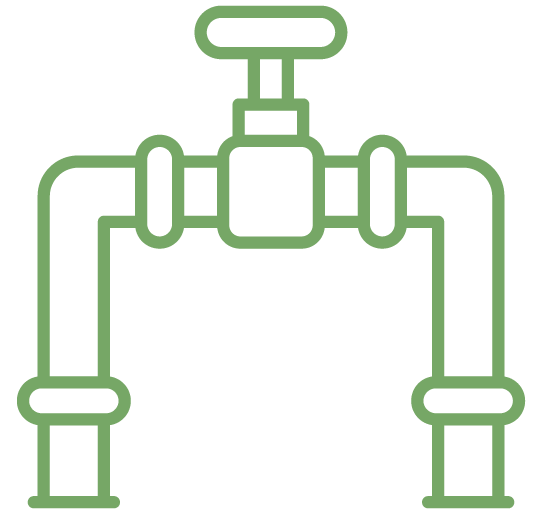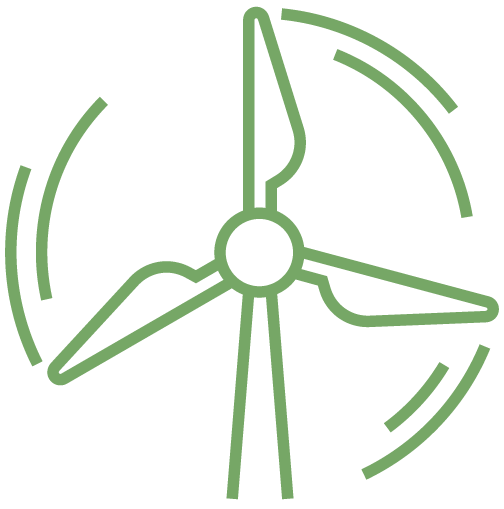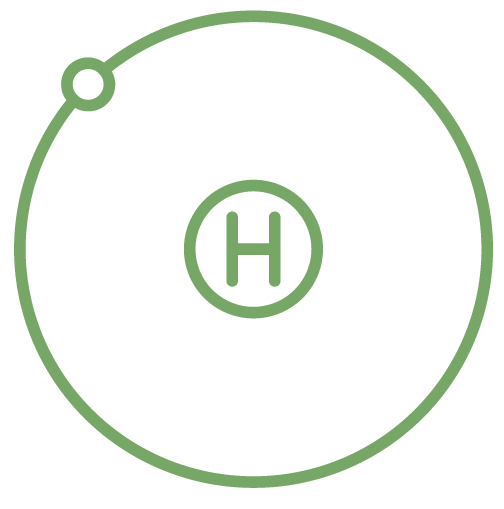2021 saw the acceleration of the energy
transition globally, with many states, sectors and governments moving quickly
to address the issues of decarbonization.
RINA started the year with a new
organisation, through the joining of its Energy and Mobility business units.
This puts us in a strong position to leverage synergies between the sectors,
combining the need for energy transition and the need for e-transport
solutions.
With one-million-man hours of engineering,
in excess of 1.1 million hours of vendor inspection & expediting, and
50,000 man days of work at sites located throughout the world, RINA’s Energy
& Mobility business unit had an exceptional year.
Our new organisation makes us more
effective to respond to market demands with several strategic streams including
sustainability, decarbonization, hydrogen, carbon capture, renewables, and
offshore wind. Globally, we have built up commercial, strategic development
units with strong competence centres to support the energy transition.


km of transmission pipeline and gas distribution network verified for H2 readiness

new LNG
projects

solar and wind portfolios due diligence

of offshore and 3GW of onshore wind grid connection support

km of Metro and LRTs & 4,000+ km of Railway Lines reached in 2021

for the first Hydrogen Train project in Italy
We have
started to acquire contracts and are growing our business in the use of
alternative fuels for transportation. In 2021, we secured projects covering the
use of hydrogen as a fuel
, sustainability of rail networks. The energy
transition requires electrification of public transport, and, during this year
as in 2020, we followed up on projects for the electrification of buses and
railways.
RINA is able to leverage its expertise across different sectors, including offshore, geoscience, environment, power generation and construction, to place it in a strong position to support offshore wind developments. We saw significant success in during the year, securing contracts including ones for Sofia and East Anglia (UK) offshore wind farms. The 1.4 GW Sofia offshore wind farm will be one of the largest in the world and one of the furthest from shore.
We have worked in many areas to increase the sustainability of operations and help protect the environment. Examples include services to support cold ironing implementation at Genoa Port, and extension of the range of assets covered by our fugitive emission service.
During 2021, we were also deeply involved in projects aimed at enhancing the Environmental, Sustainability and Governance (ESG) approach of our customers at corporate, operational and portfolio levels.
While 2021 was a pivotal year in the strategic development of global
markets and deployment of resources to support the new business unit, we have
seen a great deal of success and fruits of our labours.
Gaining references in hydrogen projects in both the mobility and energy
sectors must be a highlight of the year and shows the breadth of our
competencies in supporting the energy transition. In e-mobility, we secured
contracts in several countries.
We continue to invest in our international presence and opened a new
RINA Consulting office in Vietnam. This is an area that presents many
opportunities in green energy, sustainability and environment services, and we
have already secured several projects in the region.
In the LNG field, we consolidated our leading position in the market
and expanded business portfolio to new geographies and LNG assets
, with a focus
on the “LNG virtual pipeline”, offshore small scale and micro-liquefaction.
Alongside our reorganisation, we released several new services. These include Initial Human Rights Risk Assessment consultancy services, covering any project adopting the EP IV risk management framework. We also implemented a Workplace-Home Commuting Plant, a key digital tool to improve the sustainability of employees’ mobility to the office and contribute to a company’s Sustainability Report.
Other new tools include RINA GENIUM, which uses AI algorithms to evaluate the status of an asset. As part of the SECUREGAS R&D project, we also developed a new concept to identify methane leaks using innovative drone and laser scanning technology. The solution enables punctual and long-range inspections of pipelines and other infrastructure, detecting methane presence down to 8-20 ppm.
To support our focus in the development of offshore wind as a key part of energy transition, we have improved our advanced geotechnical laboratory testing, which is only provided by a few facilities in Europe.
Our Turbidity Currents Geohazard Assessment, launched in 2021, led us to be one of the first industry players to apply this approach to a real project. It is the most advanced technical solution on the market and allows Oil & Gas subsea and floating wind developments to avoid over-conservative field design by using advanced 3D numerical modelling, capturing the real behaviour of turbidity currents.
We further launched our Underwater Noise Monitoring and Modelling service, providing the combined expertise of environmental, health & safety and permitting services for processes and design of floaters.
Finally, our Dynamic Crude Analysis for Topping and Vacuum Units provides a tool to estimate future corrosion rates based on the characteristic of various crudes use in refinery units. It enables clients to assess the integrity status of an asset in different future scenarios.
Having worked to establish good links between different technical competencies during 2021, we are excited about the opportunities for the coming year. The demand for energy continues to increase and we are seeing positive signals in terms of investment in energy generation, following a slow down due to the pandemic.
2022 and 2023 will be important years for European markets with projects supported by recovery and energy transition funding and we expect many opportunities across hydrogen, carbon capture, electrification, energy storage, and the floating offshore wind industry. The energy transition in mobility will also be moving quickly. RINA is well placed to support these areas.
Ultimately, we expect strong growth in the revenue from the Energy & Mobility business unit as we increase our international presence, continue investing in our laboratory facilities and engineering centres in UAE, Egypt, USA, Brazil and Indonesia, and leverage the benefits we offer from our multiple competencies and expertise.
During 2021, RINA conducted one-million-man hours of engineering and exceeded 1.1 million hours in Vendor Inspection & Expediting. We carried out around 50,000-man days of onsite field activities and verified 60,000 km of transmission pipelines and gas distribution networks for its H2 readiness.
We carried out eight offshore geophysical and geotechnical investigations, taking our overall project experience to over 150 investigations. We also increased the capacity of our geotechnical laboratory by over 40% with the opening of a new space dedicated to advanced testing. This laboratory is working on several offshore wind farms and interconnectors worldwide. We performed due diligence on more than 20 GW of solar and wind portfolios along with supporting 1.2 GW of offshore and 3 GW of onshore wind grid connections. We further carried out a techno-feasibility study for an off-grid rural community powered by green hydrogen.
Building electrical resilience and security
The TUNITA project aims to intensify industrial cooperation of electrical infrastructures between Tunisia and Italy and is of strategic importance for the countries’ security and energy as well as full market integration between Europe and North Africa. Stretching over 200km, with land and sub-sea sections to a depth of 800m, the ‘invisible’ cable will add power supply resilience.
RINA evaluated two possible landfalls at either end of the interconnector and determining which are the best geographical and environmental options. It is also establishing possible routes for the underwater section, identifying and evaluating constraints and obstacles. Initial studies were followed by topographic, nearshore and offshore surveys and a detailed survey of the seabed using remotely operated underwater vehicles. Total scope of work includes desktop studies of cable routes, offshore reconnaissance survey of a 3000m-wide corridor, detailed survey of the target 500m corridor, environmental survey of the Italian shore approach, laboratory testing, engineering and reporting. It is providing geophysical, archaeological, UXO, permitting and cable specialists to support this important project.
Targeting greater efficiency in energy-intensive industries
Kazakhstan has committed to achieving zero carbon dioxide emissions by 2060. RINA and its partners carried out tasks to identify and provide information on estimated investment requirements for energy efficiency, decarbonization, and Best Available Technologies (BAT) to help the country’s targets. The work was carried out across food & beverage, transport manufacturing, chemical and metallurgy industries and represented a crucial step to the overall strategy to reduce greenhouse gas emissions.
Funded by the World Bank, the project sought to expand the bank team’s knowledge and expertise in the status and practices of energy use, identified innovative technology developments to support decarbonization and increase energy efficiency, built capacity of national stakeholders to undertake energy assessments, and identified suitable established international energy assessment cloud-based software applications. It provided a series of energy reviews and analyses of the different industrial sectors.
Increasing wind generation
RINA is providing geology, geotechnical, hydrology, environmental, social, biodiversity and wind expertise as part of an ambitious program to increase generation capacity in Ethiopia through an independent power plant (IPP) model. The project, which is an international technical and Environment & Sustainability (E&S) study in wind installation in Ethiopia, is financed by the World Bank Group.
Given that the Ethiopia’s national generation and transmission company, Ethiopian Electric Power (EEP), has limited expertise in IPP wind project tendering, the Government of Ethiopia has engaged IFC’s public-private partnership (PPP) Transaction Advisory Department to support the implementation of up to 250 MW of grid-connected installations at two sites, Aysha and Debre Birhan. RINA will inform the project stakeholders on key E&S risks and potential impacts affecting the projects at the two sites, identify gaps in information, and make recommendations to close such gaps, including proposing mitigation measures. RINA’s involvement with the project reflects its expertise in the renewable energy sector and its competitiveness in financed projects for developing countries.
The European Bank for Reconstruction and Development (EBRD) is considering providing finance to Araltuz JSC, a leading salt producer in Kazakhstan. It has engaged RINA to identify, analyse and assess resource (materials, energy and water) efficiency and production optimisation opportunities for the project. The proceeds of EBRD’s investment were used to acquire a significant minority stake in Araltuz and the project was the first step for the bank to evaluate such an acquisition. RINA provided the resource efficiency audit technical assessment for EBRD using a team of international and local energy efficiency and industrial experts.
High level project for Paraguay
In a 12-month project which started in September 2021, RINA is providing its environmental and social expertise to develop an Environmental and Social Impact Assessment (ESIA) in accordance with World Bank and KfW standards. RINA will carry out all site investigation and baseline data collection. The development of the 500 km transmission line will increase GDP for the country.
Adapting a zone for climate change resilience
Climate change affects countries on all continents, disrupts economies, and effects lives. Weather patterns are changing, sea levels rising, and weather events are becoming more extreme. In a project running from September 2021 to February 2023, RINA is working to identify strategies to reduce the effect of climate change in the Bizerte lagoon, a precious resource with a variety of ecosystems.
RINA will analyse and evaluate risks and vulnerability of the region through detailed characterisation, diagnosis of potential evolutions and identification of impacts of climate change. The project has specialized themes and requires diverse expertise, including climatology, hydrology, hydrogeology, sociology, marine and continental biology, and geographic information system (GIS) mapping.
Rapid ESG assessment provides smart actions to mitigate environmental impact
In a project which ran between September and December 2021, RINA assisted Italian fashion retailer Twinset S.p.A in assessing Environmental, Social and Governance (ESG) aspects of its operations. It executed a corporate environmental footprint analysis on the life cycle of standard product categories and defined the Circularity Index of an innovative product, ‘Treeblend Twinset Recycled’.
A quick ESG assessment covered identifying key performance indicators (KPIs), data collection, ESG scoring and the evaluation and mapping of ESG benefits, opportunities, risks and consequences. An LCA Proxy analysis outcome included a methodological approach to the assessment and used software and different LCA methodology phases.
The project aims were to elevate the Twinset brand, facilitate adoption of a sustainability mindset, and assess carbon footprint without increasing the complexity of processes. To reach the project goals, RINA developed a new ESG assessment methodology, customized to client requirements with a deep dive into the innovative Treeblend Twinset Recycled product. The project provided a rapid micro ESG assessment for Twinset to highlight a few smart actions aimed at mitigating its environmental impact.
RINA’s ongoing reputation for expertise in offshore wind
The proposed wind farms, East Anglia 1 North and East Anglia 2, located 30-40 km from the UK coast, will provide a significant contribution towards the UK’s renewable energy targets and requirements. In a project running from the beginning of 2021 until June 2022, RINA is providing power systems analysis for design verification of the high-voltage electrical system and main equipment control systems for these two offshore wind farms, which will provide a total capacity of 800 MW. The analysis covers the main offshore equipment, including wind turbines, transformers and switchgear; the sub-sea cable network; the main subsea power export cables; and the onshore grid connection.
The project has tight timescales and RINA is providing expertise in the analysis of power system and control system behaviour, and electromagnetic modelling. Offshore wind is a key business sector for RINA and this project reflects its highly regarded capabilities in this area. Its work will give added confidence in the design and robustness of the high value wind farm electrical systems.
The Edenvale Solar Park is the first large investment by Sojitz Corporation and ENEOS (large Japanese oil & gas companies) in the Australian renewables market. The new plant will reduce CO2 emissions by around 250,000 tonnes per year by supplanting fossil-fuel generation. Through its local capacity and experience, RINA is providing critical services to help the client navigate their entry into this market in a pre-financial and post-financial close owner’s engineer role.
Pre-financial close, RINA’s involvement includes amendment and consolidation of owner’s requirements, including integration of grid requirements, schedules, and performance guarantees, along with technical assistance for the negotiation of EPC and O&M contracts, including drafting of contract annexes and participation in contract negotiations. RINA is also providing input into the early works agreement scope and review of deliverables, drafting project management documentation, and providing feasibility studies for options including Battery Energy Storage Systems (BESS).
Post-financial close, RINA’s work includes comprehensive owner’s engineering and project management services; review of design packages at multiple stages; monitoring of EPC contractor works and milestones; liaison support with the network service provider and grid regulators; maintenance of documentation registers; development and maintenance of the project program, and support in all aspects of day-to-day project management. RINA will also provide continuous on-site technical support and inspection of assets to ensure continued high standards of safety and quality.
A priority transport project in the EU
The Rail Baltic Project is a European gauge (1435mm), double track, high speed railway for passengers and freight transport equipped with ERTMS signalling system that will connect the three Baltic states with Europe. The line is 870 km long and is part of the Trans-European Transport Network project (TEN-T), the EU Commission’s project for the development of a Europe wide network of infrastructure.
During 2021, RINA Consulting acted as a consultant to RB Rail AS to define reliability, availability, maintainability and safety (RAMS) processes and requirements at system and subsystem level during the project, develop specific safety studies, and disseminate a safety culture within RB Rail AS. Taking into account infrastructure and technological subsystems, work included definition of RAMS strategies and processes, development of RAMS studies, including hazard analyses, and identification of applicable RAMS requirements and was essential to ensure that the new line meets the required performances, Safety and European standards compliance, and is compatible with the systems used in the European railway network.
RINA provided experts with deep knowledge of European Standards and Regulations and their application in international railway projects. The project is the largest Baltic region infrastructure project carried out in the last 100 years.
Important transit project for Ireland and North Europe
The MetroLink Project is the development of a north-south urban railway service that will run between Swords and Charlemont, linking Dublin Airport, Irish Rail, DART, DublinBus and Luas Services, creating fully integrated public transport along the 19km route. A large portion of the route will be underground including where it passes under the city centre area and Dublin Airport. The project provides a total of 15 new stations, 3000 additional park and ride spaces, and a journey time of approximately 25 minutes from Swords to the city centre. MetroLink will cater for 20.000 passengers per direction per hour and carry up to 50 million passengers per year.
For RINA, the Dublin MetroLink project started in October 2021. RINA was appointed by Transport Infrastructure Ireland (TII) as an Independent Engineering Expert to engage with stakeholder groups and review public Railway Order drawings, Environmental Impact Assessment reports, and other relevant published documents. It will provide objective reports on various aspects of the new metro, including impact of construction and operation, and issue information about engineering design and technical decisions in a format that is easy to understand for non-experts.
The metro will increase integration and sustainability and provide a significant contribution to modal shift and traffic decongestion in Dublin, a move that will support Ireland in meeting its climate change targets. RINA expertise for the project includes stakeholder engagement techniques; metro system technology, design, construction and operation; geotechnical engineering, and railway noise and vibration.
Improving reliability of turbidity assessments
During the whole of 2021, RINA supported Rovuma Venture in all its geohazard and geotechnical activities during the detailed design phase of offshore facilities. The project resulted in the development of cutting-edge solutions for more reliable assessment of turbidity currents, a geohazard that could potentially pose greater risks through climate change. The project shows RINA’s unique technical strengths within its Geosciences team and its capacity to provide innovative solutions.
The project revealed that simplified solutions typically used to assess turbidity in industry are too conservative and did not ensure safe design of subsea structures and flowlines. The advanced assessment provided by RINA proved the impact of turbidity currents to be less severe and enabled engineering design activities to proceed.
Carbon-free, renewable shipping
The ENGIMMONIA project promotes the development and adoption of carbon-free, renewable shipping solutions and considers the design and test of ammonia engines for propulsion and other onboard energy demands. It integrates photovoltaic (PV), waste heat recovery (ORC) solutions and control systems.
The project, which started in May 2020 and runs until 2025, involves partners from several EU countries, with plans for demonstration of the proposed concept in Greece. Based on its in-depth knowledge in engineering, energy and marine markets, RINA is coordinating the project, combining expertise from its Energy & Mobility and Marine business units to provide HSE, component design, energy solutions and shipping homologation/classification expertise.
Feasibility of industrial-scale solar cooling solutions
A 12-month project starting in November 2021, this project will assess the technical, operational, economic, and business feasibility of industrial-scale solar cooling solutions in the Kingdom of Saudi Arabia (KSA). It aims at reducing fossil fuel consumption, and hence CO2 emissions in KSA, as well as expanding the HVAC market in the country.
In a contract awarded by KACARE (King Abdullah City for Atomic and Renewable Energy), RINA’s work includes the definition of a market entry strategy, technical analysis of the solar cooling renewable solution, and business model planning. The project has the potential to decrease dependency on oil & gas resources, save energy, reduce CO2 emissions, and provide diversification of the local economy through increased employment, capacity building, R&D opportunities, creation of new services and manufacturing.
Unlocking the potential of offshore renewable energy
The EU-funded EU-SCORES project aims to unlock the potential of the roll-out of offshore renewable energy in multi-source parks across European sea basins. It includes two comprehensive and impactful multi-source demonstrations with an offshore solar PV system in Belgium, co-located with a bottom-fixed wind farm, and a wave energy array in Portugal with a co-located floating wind farm. These demonstrations will showcase the benefits of harnessing complementary resources to provide a more resilient, stable renewable power system in smaller space requirements with higher capacity factors and lower total cost per MWh. The plants are designed to increase power output per km2 and leave more space for aquaculture, fisheries, shipping routes and environmentally protected zones.
RINA is a project partner for EU-SCORES, providing engineering, energy and marine expertise from its Energy & Mobility and Marine business units. It is supporting and reviewing structural and electrical design as well as providing shipyard selection for construction activities and upscaling, construction follow up and support in offshore activities and operations. The project brings together developers and service companies, namely EDP, EGP, SBE, RWE, EnBW, Eneco, OceanWinds and Parkwind, and will guarantee an accelerated pathway towards the commercialization of these innovative energy parks.
Sunlight-powered conversion of CO2 and green H2 to chemical methane fuel and CO to be used as starting material for chemical methanol fuel
The SPOTLIGHT project is aimed at developing and validating the use of a photonic device and chemical process concept to use sunlight to covert CO2 and green H2 into chemical fuels. The resulting chemical methane and methanol are identical in properties to ones derived from fossil sources, making them compatible with current infrastructure and suitable for multiple applications, including car fuel, energy storage, and starting material to produce valuable chemicals. The concept further makes the intermittent nature of solar power easier to manage and increases the financial performance of renewable assets.
RINA is coordinating two work packages, covering the evaluation of environmental impacts and long-term sustainability of the concept. It is working with stakeholder to provide advice and suggestions and providing expertise in process HSE and risk evaluation for the design and demonstration phases. The project, which started at the beginning of 2021, will run until the end of 2023.
Mediterranean offshore wind
The Taranto Offshore project consists of 10 Senvion turbines with a total capacity 30 MW, equivalent to the needs of 21,000 households. It is the first offshore wind farm in Italy and in the Mediterranean Sea. In an ongoing project, which started in July 2021, RINA is providing its experience in offshore marine operation to supervise the most critical phases of this important sustainability project.
Maintenance Engineering, CMMS, and Documentation Services
Under a large contract, worth more than €11m running for three years form March 2021, RINA is providing maintenance engineering and computerised maintenance management system (CMMS) services to control and monitor all contractors working at the Zubair oil field. Expertise includes Mechanical Rotating Planning Engineers, Mechanical Rotating Engineers, Mechanical Static Planning Engineers, Mechanical Static Engineers, Instrument Planning Engineers, Instrument Engineers, Electrical Planning Engineers, Electrical Engineers, Draftsmen, Schedulers, CMMS Specialists, and other resources. It will provide professional and international technical support to the field operator as well as scope of work preparation, budget estimation and technical evaluation of all new maintenance tenders and offers.
Under an additional contract, RINA also updated a huge number of documents to include changes and modifications implemented by various contractors in the last seven years, providing a reliable, ‘as built’ set of documents for the oil field.
RINA has been awarded a three-year framework agreement from June 2021 to June 2024 for supervision services during pipe fabrication at mills in Italy, Europe, Far East and USA. The contract is also intended for spot inspection, expediting services, and remote inspections and requires a global network of inspectors.
Supporting the nuclear energy transition
In a contract which runs from November 2021 until the end of 2024, RINA is providing independent QC and other related services during the project and modification execution of the Koeberg Operating Unit. The scope of work includes inspections, verifications, surveillance, and other related activities to increase the reliability and availability of the Koeberg Nuclear Power Plant. Work requires RINA to be registered within Eskom vendor system and local compliance with BBBEE. The contract reflects RINA’s increasing capabilities in the nuclear power sector and its status as a leader in energy transition.
Upon conversion, the Mero 3 FPSO will measure 330 m in length, 70 m in width and 30 m in depth. The floater will have a liquid treatment capacity of 180,000 barrels per day, 12 MMscm/d of gas and is expected to start production by 2024. This is the third unit to be installed at the Petrobras-operated Mero field in Libra Block in the pre-salt Santos Basin offshore Brazil (MERO1 - MODEC and MERO2 - SBM). The project office is in Malaysia and MISC’s partners for topside modules and procurement matters will be Siemens and Aker Engineering, while CIMC Raffles has been awarded the hull conversion, topside module fabrication and integration.
RINA is providing single source global inspection and expediting services covering packages held by MISC, Aker and Siemens. It will implement remote inspection procedures to enhance expertise participation and reduce costs and provide inspectors and expeditors from all over the world.
The Project will be the largest single-site concentrated solar power plant in the world
The 950 MW hybrid project (700MW CSP & 250MW PV) fourth phase of the Mohammed Bin Rashid Al Maktoum Solar Park is the largest single-site concentrated solar power plant in the world, using a state-of-the-art combination of a central tower and parabolic trough concentrated solar power (CSP) technologies to collect energy from the sun.
The technology used includes a combination of the world’s largest solar tower (100MW), parabolic trough concentrated solar power technologies to collect energy from the sun (600MW split in 200MW for each unit), and bifacial photovoltaic (250 MW).
It will be one of the world’s first energy facilities to use a combination of three different solar power technologies. The solar tower, standing 260m-high at the center of the plant site, will also be the world’s tallest solar tower. The Noor Energy 1 solar complex will also possess energy storage capacity for 15 hours and be capable of delivering power 24 hours a day.
RINA is supporting this important project with services for the preparation of operating manuals and the review of commissioning procedures and maintenance manuals for CT and PT CSP technologies. It will check and review engineering and OEM documents provided by the EPC contractor and check and review commissioning, operation & maintenance, and performance guarantee test documents from other parties. Expertise includes CSP plant experts along with process, mechanical, electrical and instrument engineers. RINA will further provide on-site O&M and commissioning training for site personnel.
Once running, the CSP plant will provide vital support to the Dubai Green Energy Strategy 2050, launched by HH Sheikh Mohammed bin Rashid Al Maktoum, Vice President and Prime Minister of the UAE and Ruler of Dubai, to make Dubai a global centre of clean energy and green economy.
Helping secure the long-term diversity and security of Europe’s energy supply
The Trans Adriatic Pipeline (TAP) connects Western and South-Eastern Europe to the abundant new gas sources in the Caspian basin and beyond. It will create new opportunities in the Southern Gas Corridor and across Europe and will be vital in meeting the region’s ever-growing energy demands in a cost-effective and sustainable way.
RINA is providing services for familiarisation and training of operating and maintenance personnel for the pipeline. Training interventions include English language, HSE, general technical coaching, and professional development training. It has and is delivering standard, tailored and brand-new courses to meet the needs of different audiences within the scope of the project.
A new way to supply gas to refuelling stations in Italy
Caserta is the first micro-liquefaction plant planned to go into operation in southern Italy. It represents a new way to supply gas to refuelling stations along Italy’s entire mobility network. RINA is acting as the Project Management Consultant during the EPC stage of the project. It is supervising the entire detailed design stage to ensure homogenous development in compliance with good engineering practices, safety and environmental requirements and final commissioning and start-up of the plant.
